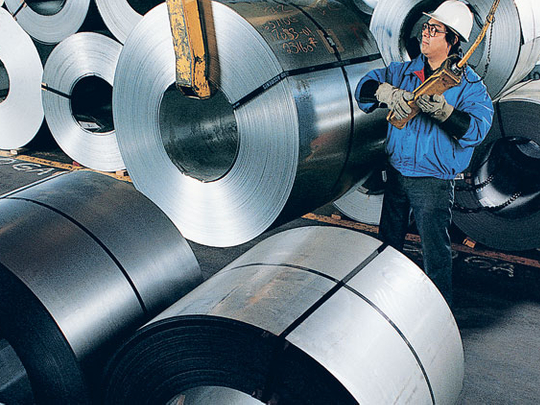
Dubai: Saudi Arabia’s non-oil private sector output surged last month according the Emirates NBD Saudi Arabia Purchasing Managers’ Index (PMI) data.
PMI for the month rose to 55.5 from 55.0 in November, driven by faster output growth. The output index rose to 63.3 last month from 60.3 in November as nearly 30 per cent of firms surveyed reported higher output compared with November.
New order growth was also strong (58.9), although marginally slower than November. Several firms cited new projects in the construction sector as a contributing factor to overall sales growth.
“The government’s payment of outstanding dues to corporates in November and December likely also supported increased activity in the non-oil sector. Export orders rose at a slightly faster rate in December on improving external demand, according to respondents,” said Khatija Haque, Head of Mena Research at Emirates NBD.
In a challenging macroeconomic environment of lower oil prices and government spending cuts, average selling prices declined marginally in 2016 as firms competed on price to secure new work. However, input costs continued to rise, squeezing margins. Despite the strong growth in activity and sales, employment was broadly unchanged in December. The average employment index in 2016 was 51.2, lower than 52.4 in 2015 and 53.0 in 2014, signalling weaker job growth last year.
Headline PMI
The average PMI in 2016 (54.8) was sharply lower than in 2015 (57.3), the index still points to a solid rate of expansion in the non-oil private sector in Saudi Arabia last year.
December’s Purchasing Managers’ Index (PMI) for Egypt continued to point to difficult operating conditions in the private sector economy at the end of 2016. The headline PMI reading improved slightly from November’s 41.8, however at only 42.8, this month’s report still suggests a relatively rapid pace of decline. This brought the average PMI for the year to 46, which is the lowest in the survey’s history. The fourth quarter average was also a record quarterly low at only 42.2.
The output and new orders components of the PMI remained well in contraction territory at 39 and 38 respectively. The main factor weighing on business activity stems from the weakness in the Egyptian pound, which according to Markit has led to substantial cost pressures, raw material shortages, and a downturn in client demand.
The most noticeable improvement in the PMI survey in the past several months has been seen in new export orders, which rose to 47.8 in December from 35.8 in October.
“Although still declining, this was the slowest pace of contraction in export orders since September 2015, with some firms mentioning that the EGP devaluation had helped generate new business. Although Egypt does not have a large export-oriented manufacturing base, we still expect this sector to be the first to benefit from a more competitive currency,” said Jean-Paul Pigat, Senior Economist at Emirates NBD.












